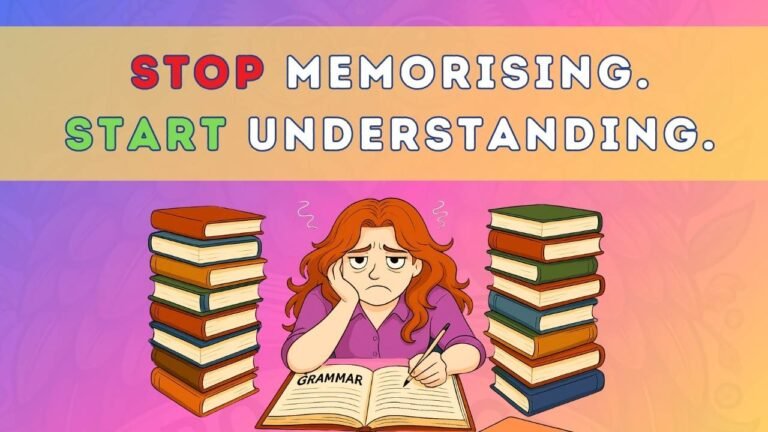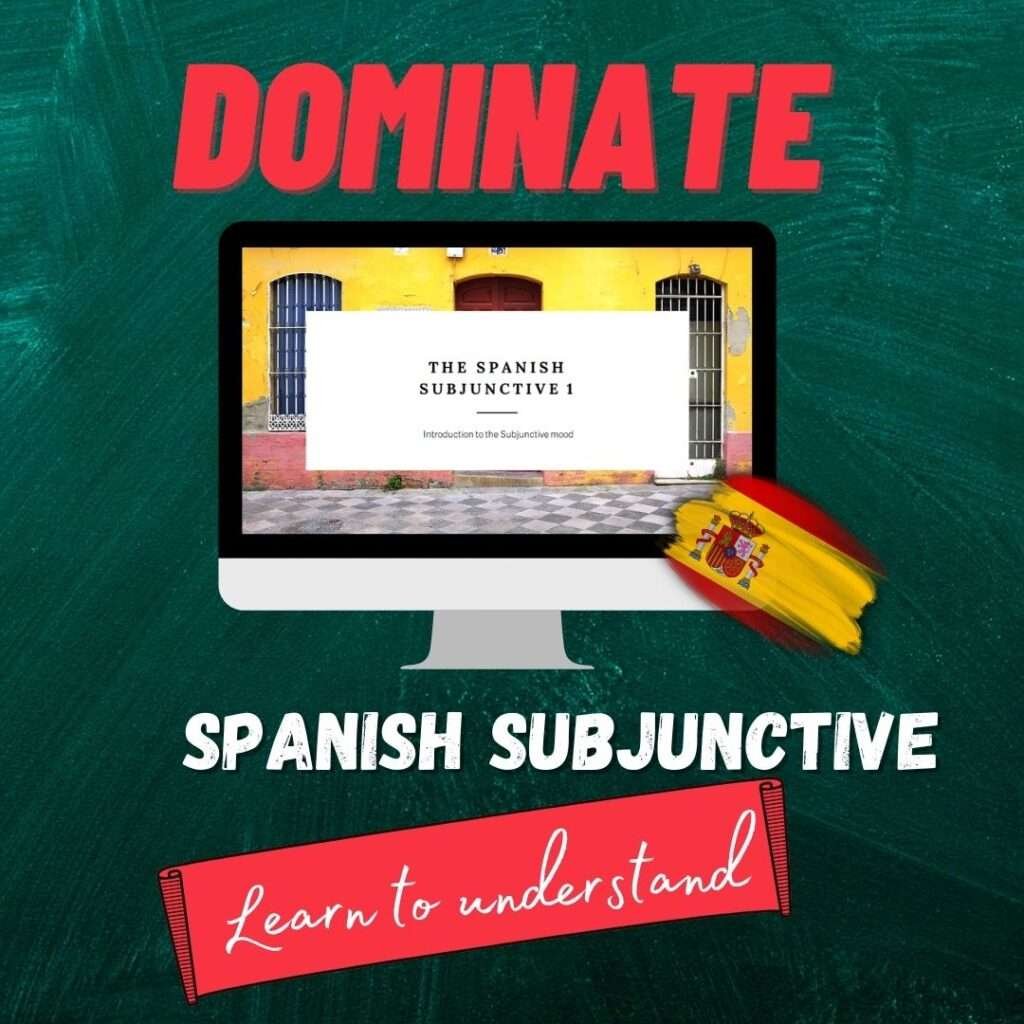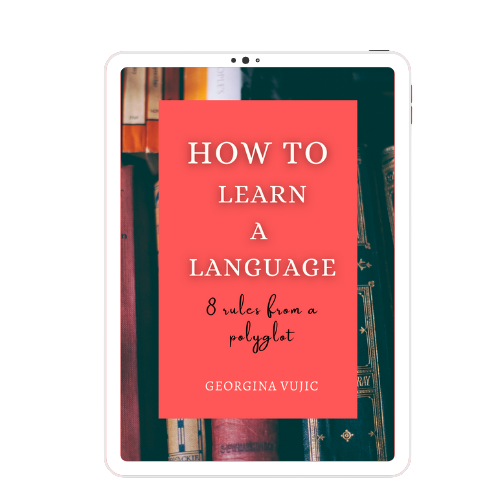If you’ve already decided that you will be prepare for DELE C2 exam, you probably know the gist of it by now. DELE stands for Diploma de Español como Lengua Extranjera (Diploma in Spanish as Foregin Language) and it is a globally renown Spanish exam that can open many doors for you.
For comparison, think of IELTS in the English speaking world. But unlike IELTS, DELE has six levels that you can take, based on the Common European Framework of Reference for Languages.
So, if you’ve decided you’re ready to take DELE C2, the highest, mastery level, there’s a couple of things for you to keep in mind from a team who have been training students for DELE for a long time and from someone who has passed DELE C2.
KNOW THE DELE EXAM STRUCTURE
Being familiar with the structure of any type of language exam is important for many reasons. Knowing what to expect is part of the training you need to go through. It will make your brain more efficient on the day of the exam, you will have tricks, tips and most importantly – confidence from the familiarity. It will save you a lot of stress on the day of the exam. If you don’t know what goes into it, everything will be new to you so you will need to figure out what the task is, what’s the best way to do it, where and how to write your answers. This will make you lose precious time, and ultimately, affect your confidence and your performance.
When it comes to DELE C2, this is even more important. Why? Because the C2 level has a different structure from all the other levels. This level has gone the farthest with the integration of different language learning activities.
To clarify, let’s take a look at the structure of levels, taken from the Instituto Cervantes website.

As you can see, things get a bit more complicated starting from C1 level, with two out of four parts being integrated activities (auditory comprehension + written expression and reading comprehension + oral expression).
DELE C2 is the only level that has three parts instead of four, with all three parts being integrated activities. But what does that actually look like in an exam?
PART 1
Out of the three parts, the first one is probably the most straightforward one. Here, they will test how well you can manipulate the slightest nuances in meaning and piece things together based on your comprehension. You will get three texts that you need to fill in with the correct word, put fragments in the correct order or mark the correct statement about the text. These tasks are followed by another set of three tasks, this time testing your listening comprehension.
A little tip: try to finish with the reading bit 10 minutes early and start reading questions and statements from the listening part. You should be allowed to do that. Reading and listening activities form one unit and are handed to you in the same set of papers. We recommend you do this because once the recording is on, you won’t have time to read text more thoroughly. You will be focusing more on what you’re hearing.
PART 2 AND 3
In general, parts two and three are considered more demanding. This is because they demand a lot of output on an academic level. This includes, but is not limited to, several different sources of information that you will base your written or oral exposition on. This will test your ability to process scientific and academic information in Spanish in both written and auditory form, only to learn from and produce based on it.
You might get two texts and one recording from which you’ll have to write an essay. Or you will have to write an informative blog post combining information three graphs.
That’s another important thing to remember about DELE C2: at this level, graphs will always appear, whether in part two or three, or both. So try to familiarize yourself with different kinds of graphs: pie chart, bar chart, column chart…If you don’t know how to read graphs, you can visit Cervantes Virtual where you can find many examples. They come in with explanations, which is very useful.
Make sure to expand your vocabulary to successfully transmit information from graph analysis. Graph analysis requires a specific register that you need to dominate with confidence.
The oral, and final, part of the exam consists of three tasks, but you should approach each one of them differently.
You will first have to prepare a presentation based on texts or graphs offered. This will test your ability to again, combine and process different information, and to present it on the spot. You should talk for 6-7 minutes, which is a long time for an exam. Do your best to not resort to offering your personal opinion on the matter. DELE C2 focuses on an elevated register and academic and business contexts. The presentation should, therefore, be strictly objective, professional and informative. Don’t focus on one source too much or completely skim over another text or graph. You might lose points or be asked additional questions.
Your personal opinions and feelings come in during the second prueba. This is where you will be asked a series of questions about the presentation topic. You might be asked questions such as Do such measures/customs/laws exist in your country? / How would you solve that problem? etc.
The third part is the least formal one. You will be given a series of newspaper titles that you will discuss with the examiner. This is a very informal conversation, where you can, and are encouraged to, ask questions as well. Think of it as a dialogue where you need to prove you can be a contributing, active participant. It might seem counter-intuitive to a nervous exam taker to be the one asking questions. Don’t worry about that in this part. This is the opportunity for you to finish strong in a more relaxed conversation. You should also showcase that you can switch between informal and formal registers effortlessly.
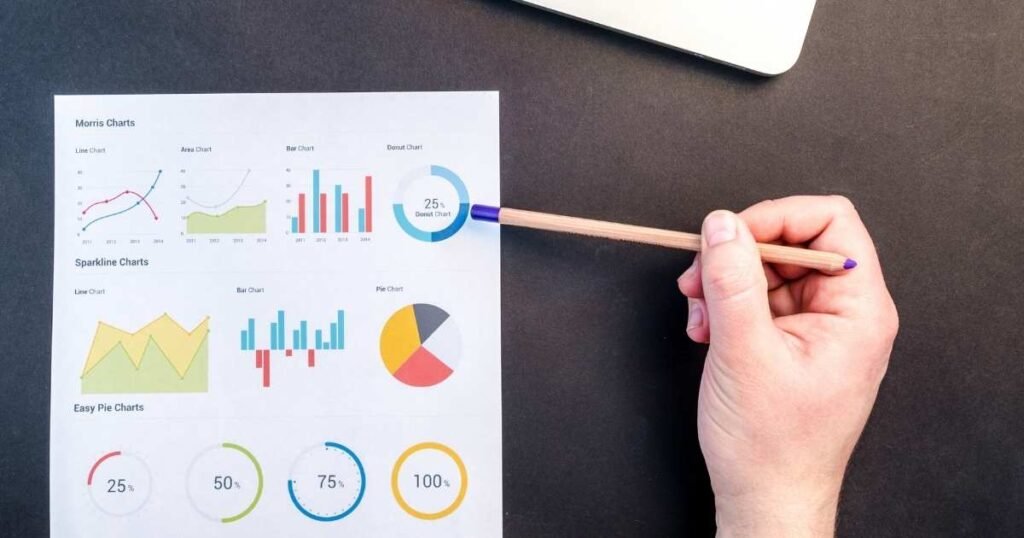
KNOW YOUR REAL SPANISH LEVEL
Probably the most important question you ought to ask yourself before applying for DELE is: am I already at C2 level or am I still working towards it?
There are several reasons for that:
- Preparing for exam isn’t the same as learning language
- It will affect your study plan and the time it will take you to get ready
- If you’re not at C2 level yet and need help getting there, you will most likely need a tutor to help you both reach that level and prepare you for the exam
If you decide to take a preparatory course for DELE C2, make sure that you’re really at C2 level before you do that.
Why? Because preparatory courses are not designed to teach you language. Their aim is to prepare you for the exam by familiarizing you with the structure. They will focus on familiarizing you with the structure and providing you with little tips and tricks to give you that confidence boost before the exam.
In the case that you do take the course without truly being at such a high level, you will probably struggle immensely. The main difference between C2 and other levels is that C2 is an academic level. Have you ever heard a university lecturer give a speech? That’s the level of eloquence and register you will be expected to have, both in written and spoken form.
So what can you do if you still want to apply for DELE C2, let’s say, 10 months from now? You could take traditional classes outside of your preparatory course that will help you up your level. You could also find a tutor that can do both, saving you time and money.
A quality tutor will always create a study plan according to your needs and requirements. Your study plan should, in this case, combine language learning and specific exam preparation. With the proper motivation, regular, well distributed classes, and a lot of work inside and outside of the classroom, you can definitely reach the desired level in time. That also depends on how far from C2 you really were when you started.
If you’re self-taught, that can be very hard to truly assess because you probably haven’t had any feedback during your language learning journey. If you were just using an app and Duolingo told you you’re at C1 – you probably aren’t.
The best way to establish the level you’re truly at is by arranging an assessment with a great, professional tutor who has the necessary academic knowledge and experience with DELE. They will cross-examine you more thoroughly than any online exam, provide you with proper feedback, advice, and plan of action. They will teach you how to write and speak as an academic, how to analyse information, and they will give you the necessary, consistent feedback, covering all your weak points. To find out more about how to find and recognize a good tutor, you can read our article dedicated to that topic.
BUY THE RIGHT MATERIALS
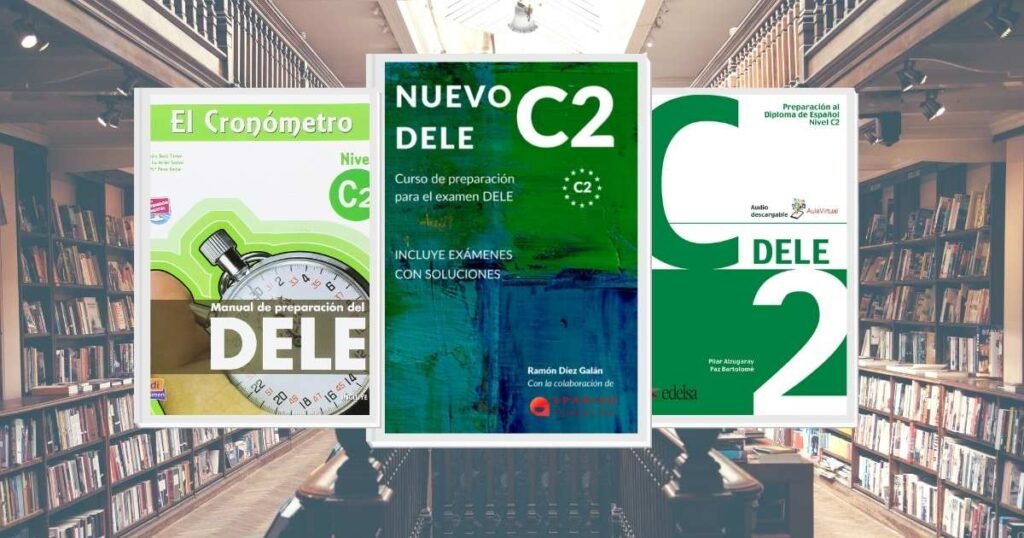
If you’re already quite confident in your knowledge and believe you can prepare for the exam on your own, then the right set of materials will be your best friend. We’ve already discussed the importance of familiarizing yourself with the layout of the exam. Much like the preparatory course, this is what your choice of materials should do for you.
First of all, make sure that you buy books and workbooks that are tailored specifically for the DELE exam. By going through multiple models of the exam, you’re going to get more comfortable with the structure. You can also find a sample on the Instituto Cervantes website.
Books, however, usually include several sets of exams plus some useful tips. The downside here is that, even though there are many preparatory books out there, there aren’t that many aimed at C2. This is purely because there aren’t that many people taking C2 level in comparison with A2 or B1, so the lack of demand makes it less present on the market.
Another thing to bear in mind is that many of those books are quite outdated. Make sure that the book was published after 2011, which is when the integration change for DELE C2 came about. What makes a lot of them obsolete is also the fact that they come with a CD. Most modern laptops don’t even have a CD player anymore, so you might have to outsource an external CD player or find books that have their recordings online.
What might hinder the progress of self-taught learners is also the fact that, while there are solutions provided at the end, there will be no way of checking the written assignments.
If you’re working with a tutor, then this won’t be a problem for you. If you’re self-taught, it might be harder for you to get feedback. The good news is that you can find preparatory online courses that offer the independent correction service so you can submit your work there.
We also offer feedback services on a regular basis.
That being said, here’s a couple of books that we can personally recommend:
NUEVO DELE C2
This book includes four full exams, as well as some useful advice and exercises to expand your vocabulary at the beginning of each unit. And don’t worry − you can find all of the recordings on Youtube.
EL CRONÓMETRO
El Cronómetro is pretty much the classic of DELE preparatory books. It’s pretty straightforward, with four exams included. It’s been on the market for years and it’s still one of the most sought out books to prepare for DELE.
DELE C2 PREPARACIÓN
What makes this edition stand out is the fact that, aside from the exam models, it gives you a breakdown of all the types of texts you might have to write: the right linking words to use, the appropriate header, as well as examples of texts.
¡Ojo! You need to purchase solutions separately.
NOT EVERY NATIVE SPEAKER COULD PASS DELE C2
As we’d mentioned previously, what sets C2 apart from the other levels is the academic element. But what does that mean, exactly?
C2 stands for mastery, which means you understand everything you read or hear and are at no disadvantage in comparison with the native speaker whatsoever. However, we’d like to make one important distinction here. Not all native speakers are able to speak, write and read at an academic level.
As an illustration, let’s take this scene from Friends. Here we can see Ross, Rachel and Joey at a conference. Ross is definitely the nerd of the group. He’s the highly educated one so he’s like a fish in the sea in the academic environment. Joey and Rachel, however, don’t belong in the same social group. Their reactions stand out from everyone else around them. They find the register Ross is using funny because they’re not used to it and they don’t know what it means.
This is why you should not only read as much as you can, but read at an academic level. You should be able to read 100 años de soledad in original without a problem as well as any type of scientific text.
This doesn’t mean you have to be an expert in all these topics, but you should be able to understand, summarize, and defend your opinion based on what you read, using the appropriate, elevated register to do so.
The texts offered to you at C2 level won’t be everyday topics. They will always be about some modern world problem, a philosophical idea or a scientific hypothesis, sparking debate rather than a casual conversation.
Which leads us to the next point.
ADJUST YOUR REGISTER: KNOW YOUR CONNECTORS
In addition to reading elevated texts, you should also be writing a lot. Ever wonder why university lecturers speak so clearly? It’s not so much because they read a lot, but because they write a lot too. A well-constructed academic text contains a lot of elevated words as well as adequate connectors, making the text flow gracefully. Before giving a lecture, they will usually write down their ‘speech’, that is, the key points of their exposition. By repeating it out loud, they reinforce the knowledge, not just of the subject, but of the way they express themselves. By summarizing ideas in this way, usually from several different sources (sounds familiar?) they also learn to effectively organize their ideas and thoughts. Additionally, their brain goes through so much repetition and revision that they acquire the academic expressions and vocabulary alongside the contextual knowledge.
Even though they don’t do this with that specific goal in mind (their goal is to give a good lecture), they become more organized and eloquent through constant practice and repetition. So if you have to up your game, learn how to speak better and clearer. Write a lot and do a presentation based on it, even if you’re your own public.
Furthermore, the trick is also in knowing HOW to write. At C2, you will get all sorts of texts to write as an assignment. That can mean a letter of recommendation, an argumentative essay, a review, a newspaper article, a blog post, a complaint letter…
Each one of these types of texts has a specific structure and rules to follow – and you have to know all of them because you can’t know which ones you’ll get on the day of the exam.
Apart from the structure, you must also use the appropriate vocabulary and connectors. Connectors, as the word itself says, connect, link different parts of text. They can be used to introduce topic, give examples, add information, summarize, reinforce or contrast ideas. What a lot of learners don’t know when preparing for an exam is that connectors can be divided by levels, too.
Take a look at the photo below. On the left side, you can see connectors that are more appropriate for lower level texts, such as A2. Ante todo, antes de nada, sounds more sophisticated and definitely belongs in a C2 text. You can download the entire resource at the end of the article.

But how will the use of connectors really affect your final score, you might wonder?
MARKING CRITERIA
Let’s take a look at the criteria for written expression:
- Adecuación
- Coherencia
- Correción
- Alcance
What we want to look at here is coherencia, cohesion. This means that the information in the text must be well organized. It shouldn’t be strenuous for the calificador to connect the dots between your thoughts. This is accomplished by introducing each new idea with the adequate linking word. The criteria for oral expression is pretty much the same, with the exception of adecuación being replaced by fluidez. Therefore, the knowledge of connectors will serve you both in the second and the third part of the exam.
For example, we recommend our learners to use de ahí que every chance they get. De ahí que is a connector that requires the use of subjunctive. By doing this, you’re showcasing your knowledge or complex grammar as well as using an elevated connector.
By learning these connectors by heart and using them repeatedly, you’re going to develop that muscle and it will come easier to you with time. This is the kind of register they’re expecting to see at C2. Make sure you learn as many of them as you can.
DOMINATE NUANCES IN MEANING
As you can tell by now, DELE C2 isn’t just about being proficient in a language. It’s also about knowing how to write all these different types of texts. This is something most native speakers wouldn’t know how to do, either.
Let’s see how Joey did when he had to write a letter of recommendation:
This video raises a very good point. Being proficient in a language is not about throwing in fancy words every chance you get. It’s about possessing a feeling for nuances, knowing exactly which word fits the situation best. And this is exactly what the adecuación criteria means. You must bear in mind who the text is intended for.
Is it a newspaper article for the average readers, is it a letter to a formal institution, or an informal email? Your tone, structure and vocabulary must match the situation accordingly. Someone who is at C2 should be able to switch effortlessly between different registers, understand and use vocabs in a myriad of contexts and meanings. You will be tested on that. Moreover, the second tarea in the written expression will perhaps put that to test the most. You will have to make corrections in a text, minding the register. So if the person in the text is using informal speech markers or words in a situation that’s supposed to be formal, you will have to correct that and replace it with a more adequate word.
All in all, DELE C2 is a universally very useful diploma to have on your side if you want to work with Spanish or study in a Spanish speaking country. It is also a very complex exam to prepare.
Maybe the most important thing a learner should keep in mind is that preparing for the exam isn’t the same as learning language. Always assess your real level before starting down this road, so that you can plan accordingly. This can mean taking extra classes outside of the preparatory course or taking the exam a bit later than intended initially.
However, DELE C2 isn’t just about proving that you’ve reached mastery. It’s also about studying the structure of the exam, learning how to write different types of texts and knowing which connectors and words to use in all types of registers. This is why it’s called mastery. You should be a master of that language in all areas the languages lives in.
Because DELE C2 is academic, you will be required to read, speak and write at a very elevated level. That’s why it’s important to inform yourself about what will be expected from you ahead of time. This will allow you to gather the right materials and practice specifically with that in mind.
PREPARE FOR DELE WITH ROMANCE
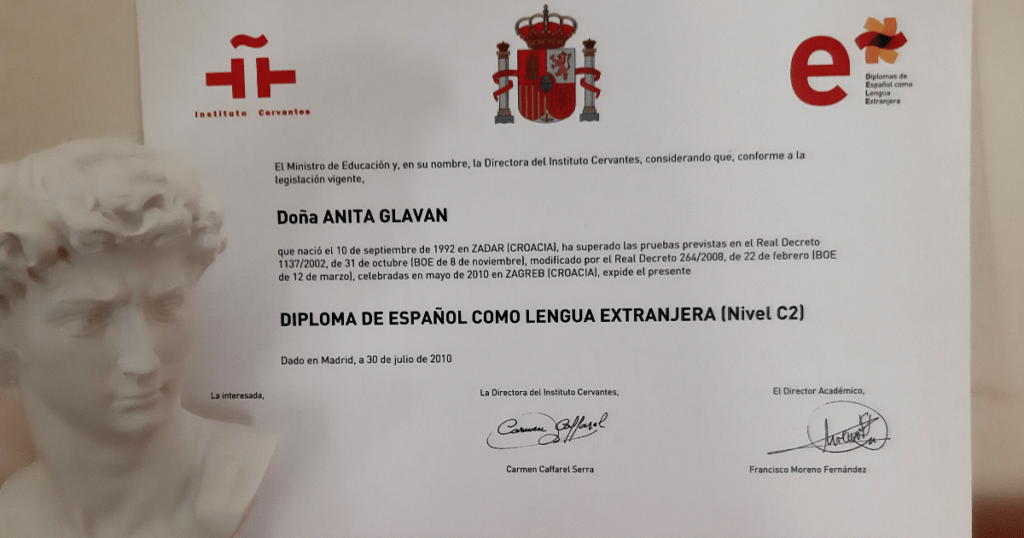
As proud owners of DELE C2 diploma ourselves, we’ve taught others over the years about all the aspects of the exam and how to get the maximum results, while also paying attention and working on bettering your Spanish through consistent and honest feedback.
If you would like to book an assessment, feel free to contact us. We would love to hear from you and talk about your goals in hopes of being able to help you achieve them. In the meantime, you can access the connector resources following the link. We hope it serves you well.








